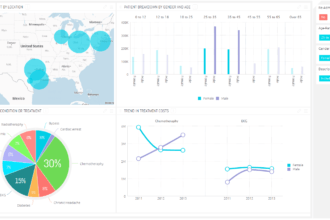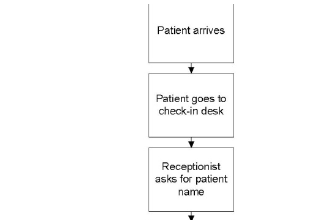 Last year, the Ponemon Institute, a research firm that advises organizations on data security and privacy, released a report revealing that each hospital loses an average $2 million a year in productivity when clinicians can’t access electronic health records. The report sponsored by “Best in KLAS” SSO market leader, Imprivata states that 83 percent of respondents said SSO simplifies access to applications and data, and about 70 percent of participants thought SSO was important or very important to adoption of EHRs and related systems.
Last year, the Ponemon Institute, a research firm that advises organizations on data security and privacy, released a report revealing that each hospital loses an average $2 million a year in productivity when clinicians can’t access electronic health records. The report sponsored by “Best in KLAS” SSO market leader, Imprivata states that 83 percent of respondents said SSO simplifies access to applications and data, and about 70 percent of participants thought SSO was important or very important to adoption of EHRs and related systems.
Single Sign On (SSO) technology can assist healthcare organizations in overcoming their barriers to clinical adoption by physicians/clinicians with secure access to EMR applications. With the recent announcement of Stage 2 Meaningful Use requirements, single sign on (SSO) technology can play a vital role in helping healthcare organizations accelerate in meeting with requirements to meet stage 1 and 2 Meaningful Use.
The following is five ways to leverage SSO technology to drive Meaningful Use:
- CPOE– CPOE adoption can be a challenge for any healthcare organization as one of the core measures for Stage 1 Meaningful Use. Moving forward with Stage 2 Meaningful Use will expand these challenges. One of the key drivers for CPOE adoption is making this process as simple and painless as possible for physicians. SSO technology can streamline access at the point of care allowing the physician to easily enter their orders.
- HIPPA Security and Compliance– Meaningful Use require that every healthcare organization comply with privacy and security by conducting a security risk analysis. SSO technology authentication management capabilities can provide a multitude of benefits in assisting healthcare organizations with assessing potential risks to PHI including:
- Centralized access that streamlines system activity reviews for activity reporting/log management
- Person or Entity Authentication from a broad range of technology (badges, biometrics, mobile, etc.)
- Centralized audit controls of all workstations/applications
- Workstation security that prevents unauthorized access to PHI when workstations are unattended
- Optimized Workflow-SSO technology simplifies access to patient information reducing the number of clicks and improve productivity
- Enhanced Mobility– According to recent reports, mobility is one of the key drivers of Meaningful Use. Physicians are mobile and need the ability to have access to secure simplified access to up to date patient information at any time. SSO technology provides physicians with the needed access to secure PHI data from their mobile device of choice improving their delivery of patient care.
- Information Exchange-The ability to share exchange clinical information security is one of the key requirements of stage 1 Meaningful Use. SSO technology simplifies the ability to share and exchange clinical information.








